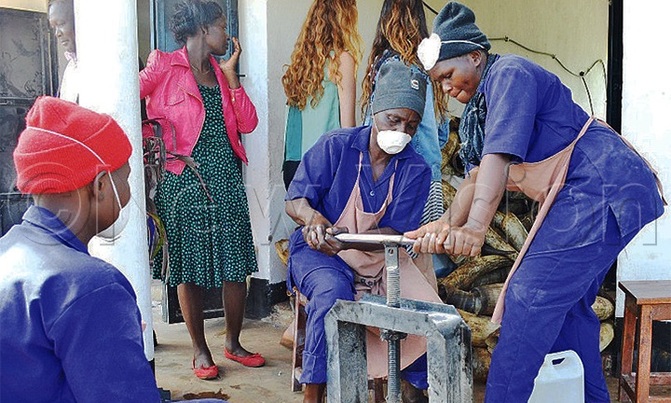Women in manufacturing continue to face difficulty in accessing capital that is needed for the expansion of their businesses. Workers using a compressor to shape the horns. As a result of difficulty in accessing capital, many of the women owned manufacturing businesses remain unable to grow into medium sized enterprises. (File photo) A new study by the International Center for Research on Women (ICRW) found most women-owned manufacturing businesses are Micro, Small and Medium Enterprises (MSME) and operate in the informal sector.
Women in manufacturing continue to face difficulty in accessing capital that is needed for the expansion of their businesses as most banks require collateral that most women do not have.
The situation in Uganda
"The research is definitely correct. One of the biggest hindrances to growth for women-owned manufacturing businesses is not just the lack of capital, but the lack of access to cheap capital," says Maxima Nsimenta who quit her engineering job to start a cosmetics manufacturing business.
"Women have just started out in business to create wealth for themselves. The bottleneck of capital is a challenge. Personally, I had a challenge. It’s difficult to find a secure and affordable source of cheap capital."
"The 25% to 30% we pay in interest for loans is too high, yet the profit margin we are making is low. It takes a lot of work to pull off the debt before moving to the next level," says Nsimenta who is the founder and CEO Livara Cosmetics Company, in an interview with New Vision.
The report points out that as a result of difficulty in accessing capital, many of the women-owned manufacturing businesses remain unable to grow into medium-sized enterprises, and experience a high cost of production, high cost of transport and high cost of capital expenditure.
Banks more male leaning
The Head of SME and Agribusiness at KCB Bank Kenya, Naomi Ndele says even if the banking sector is neutral, banks lean more towards supporting men.
"The banking model was developed by men to support men. Men have the most access to lending modalities, very few have been re-modelled to incorporate the needs of women," she says in reaction to the report.
Ndele disclosed that a few products in the market are developed for women. She says the lending modalities by banks need to be reviewed to enable women gain access to the sizable capital needed for the expansion of their business and also […]
